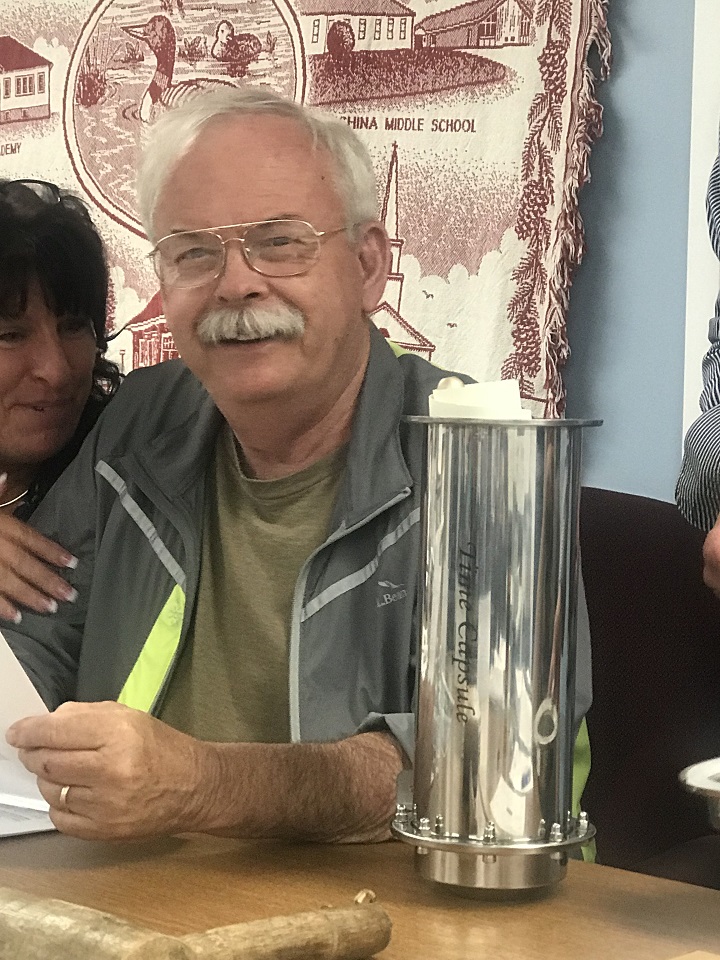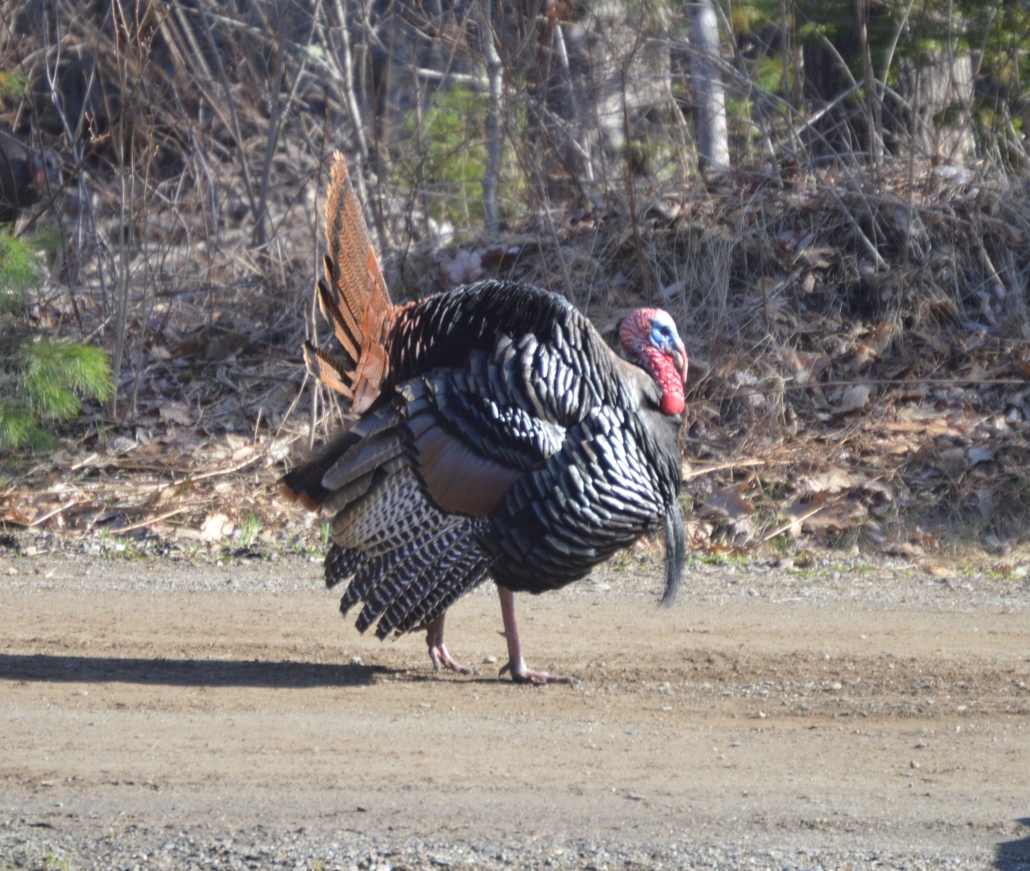
ruby-throated hummingbird
On Friday, May 11, my wife and I officially moved to camp for the summer. It’s always great to leave the city and live in the serenity by the lake for about five months.
And, on Sunday, we were greeted by my wife’s favorite bird, the ruby-throated hummingbird. It was nice to see the little critters back with us.
As usual, the rule of thumb for their return from the south is around the middle of May.
The ruby-throated hummingbird, Archilochus comumbris, the only hummingbird species found in Maine, winters between southern Mexico and northern Panama. During their migration south in the fall, usually mid-September, older male and female birds are better prepared for long-distance flight than first-year birds by having higher body weights and larger fuel loads.
Adults of the species are not social, other than courtship, which lasts a few minutes, they lead solitary lives. They do not migrate in flocks, so individual birds may spend the winter anywhere in this range where the habitat is to their liking. They probably go to the same place every winter.
While we’re talking about their migration, let’s put a myth to bed. The myth states that hummingbirds hitch a ride on the backs of geese as they migrate south. The legend is entertaining, but false. Hummingbirds and Canada geese migrate at different times and to different locations. It is also a fact that not all hummingbirds migrate south for the winter.
Following the mating, the male departs and the female provides all parental care.
When it’s time to return north to their breeding grounds during the spring migration, portions of the population fly from the Yucatan Peninsula, in Mexico, across the Gulf of Mexico, first arriving in Florida and Louisiana. That in itself is an amazing feat. How can such a small creature travel the 500 miles nonstop over water? It would seem the caloric energy would far exceed the hummingbird’s body weight of 0.11 ounces. Research has discovered the tiny birds can double their fat mass in preparation for their gulf crossing, then expend the entire calorie reserve from fat during the 20-hour crossing when food and water are unavailable.
During the courtship displays, they make ticking sounds with their wings, and shuttle side-to-side in flight. I once witnessed a male hummingbird during courtship by flying, rather rapidly, in a U-shaped pattern, beginning at the top of the inverted arch, flying downward, circling back up to the same height as it began, and back again, several times. It was pretty impressive to watch.
Hummingbirds have one of the highest metabolic rates of any animal. During flight, their oxygen consumption per gram of muscle tissue is approximately 10 times higher than that seen in elite human athletes.
They feed frequently during the day. When temperatures drop, especially on cold nights, they may conserve energy by entering hypothermic torpor (the process of lowering their body temperature to conserve energy).
During their hovering at feeders, the hummingbird’s wings beat up to 80 times per second. They are also the only bird that can fly backwards. Once, while my wife was sitting on the deck near a potted geranium plant, a hummingbird came to feed. It got so close she could actually feel the cold breeze coming off the bird’s fluttering wings.
Hummingbirds almost never stop. Although I have seen them sit on a perch at the feeders, they spend nearly all of their time in the air. Their legs are so small and weak, they typically can’t walk at all. But in the air, they are masters. They can, however, shuffle to move along a branch, and can scratch its head and neck with its feet.
Speaking of feeding, when is a good time to put out the feeders in the spring? In the northeastern United States, they should be ready by the end of March. Don’t wait until you see your first hummingbird, that may be well after the first ones arrive.
As unlikely as it seems, hummingbirds have predators. A variety of animals prey on hummingbirds given the opportunity. Due to their small size, they are vulnerable. However, only very swift predators can capture them, and a free-flying hummingbird is too nimble for most predators. Chief predators include sharp-shinned hawks, praying mantises, green frogs and bull frogs. Praying mantises especially have been seen to ambush adult hummingbirds at feeders on more than one occasion. Blue jays are common visitors at nests, as well as bats, squirrels and chipmunks.
The oldest known ruby-throated hummingbird to be banded was a little over nine years old. Almost all hummingbirds over seven years old are females, with males rarely surviving past five years of age. The reason probably being that males may lose weight during the breeding season due to the high energy demand of defending a territory. Also, the high demands of the migration can take its toll.
The “hummers” are back, and that definitely means summer is not far away.
Roland’s trivia question of the week:
“Game, set, match,” is an expression used to indicate a competitor has won the game in which sport?
Answer can be found here.









 (NAPSI)—Every heart has a built-in pacemaker that ensures it beats regularly. When that natural pacemaker doesn’t do its job, however, a person may experience an irregular heart rhythm, the most common and undertreated of which is atrial fibrillation (AF). This irregular heartbeat isn’t always noticeable at first but can cause chaos over time.
(NAPSI)—Every heart has a built-in pacemaker that ensures it beats regularly. When that natural pacemaker doesn’t do its job, however, a person may experience an irregular heart rhythm, the most common and undertreated of which is atrial fibrillation (AF). This irregular heartbeat isn’t always noticeable at first but can cause chaos over time.
